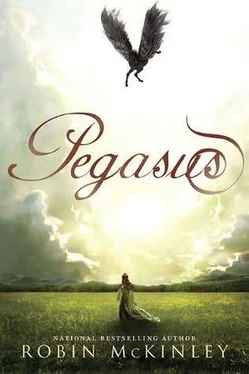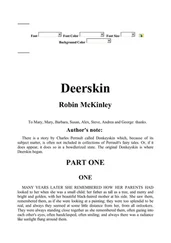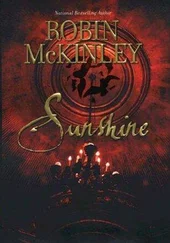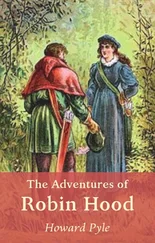When she had done so he too had stood looking at his penknife with an expression, she imagined, very like the one she had worn when she found it: delighted, dismayed, baffled, unhappy.
“What were you doing in the Hall of Magicians?” he said at last.
Again she answered honestly; her father did not try to make you say things that would make it worse for you. He wanted to know.
“Someone”—Garren, but she didn’t need to say that—“told me that the Hall of Magicians smelled of magic, and if I went there some time by myself when no one else was around, I would learn what magic smells like, and then I would always know.” He had also told her that on a sunny day you could see faint reflective ribbons of the enormous power used to maintain the protective magic of the Wall, dancing in the sunlight like dust motes.
“And did you learn what magic smells like?”
She hesitated. She knew, now, that her brother had set her up. She should have known immediately, because that was, in her experience, what brothers did; but she had badly wanted to know what magic smelled like—or some other way to recognise when magic was being used around you so you knew why you felt so queer. So she had ignored her common sense, and gone to the Hall. Where she’d realised she’d been played for a fool—she couldn’t see that the dust motes in the sunbeams were any different from any other dust motes either—and found the king’s little knife.
“It doesn’t have a smell, does it?” she said. “Just when they use incense and things, it smells of incense. But . . . but it does something, doesn’t it? Because you do feel it, when you’re all alone in the Hall.”
“That may merely have been the apprehension of approaching trouble for being where you oughtn’t,” said her father drily, and sighed. “I don’t know what it’s like to be an ordinary person bound by ordinary rules—you can perhaps ask your mother—I was born the ruling monarch’s eldest child. And as a person who may rule absolutely over other people you must absolutely obey the rules. I will ask Ahathin to set you new work: in a month’s time you will bring me a paper on village magic, on what the local wise woman or wise man can be expected to do, and how likely it is to be successful. You will, as I say, bring me a paper in a month, and another paper in another month, and thus, until I tell you you may stop.”
There was a little silence, during which Sylvi considered that she would have less time to ride her pony, and go out with the huntsfolk and the falconers. But she also recognised that this wasn’t punishment like a slap with a riding-whip was, or nothing but plain porridge for a week. This was much worse. But it was also much better.
“And yes . . . magic does . . . something: makes its mere presence felt somehow. I don’t think it’s a smell either. I don’t know what it is. I would like to know. You may consider that this is the purpose behind your research; I think you are more likely to discover the answer investigating straightforward, practical village magic than what the guilds send to the palace. And no one pays much attention to hedge wizards; I have thought before that I would like someone to pay attention and tell me what they see.”
She had brought her father monthly papers for three years. He had let her off a year ago, but by then she was interested—and the network she had set up for people to bring her stories (people who were first carefully vetted by Ahathin or, lately, one of her guards) was working too well for her to be willing to close it down. She had brought her father three more papers in the last year, and they were all long ones.
She continued to carry them to him herself, and with the third one this year she finally caught him smiling. “ This was as much a set-up as Garren sending me to the Hall in the first place, wasn’t it?” Her father had guessed that one of her brothers had been responsible, and Garren had admitted it—and been assigned three months’ attendance on Nirakla as punishment. She used no magic herself, and was happy to have an extra pair of hands for the summer to bundle and hang, chop and grind herbs for her. “She wanted to know if I wanted to apprentice to her,” Garren had said at a private family supper at the end of his term with her, trying to sound outraged. “She said I chopped really well.”
Sylvi said again to her father, smiling over her latest paper on hedge magic, “ Wasn’t it?”
“No. Yes,” said her father, and laughed. He didn’t laugh often enough. “One has various things in the back of one’s mind. Occasionally an opportunity presents itself to bring one forward. Most of these opportunities come to nothing. Once in a very great while one—or two—do come to something.”
Garren had not apprenticed to Nirakla—his father could not spare him so far. But Nirakla had agreed to a half apprenticeship, and the king had allowed his youngest son a certain latitude in terms of creating unnecessary work for his new tutor by knocking people down who were inclined to tease him about his new assignment.
The thing that had stuck in Sylvi’s mind during her long atonement was that the Hall of Magicians was used when someone wanted the truth about something—the truth when it concerned magic or magicians. The guilds sometimes used it; the king, with or without the presence of the council or the senate, sometimes used it. She wondered—she couldn’t help wondering—what effect the Hall itself had had on her experience and its outcome. She had found the possibility that its enigmatic half-sentience had been involved curiously cheering, as if it was an indication that magic was not quite as inimical as she’d thought. As if magic was more often like Ahathin than it was like Fthoom. Although writing her papers always took longer than she expected, because even the most trifling of village magic didn’t like being pinned into paragraphs.
But a shadow had grown over this, as over so much in her life. After her twelfth birthday she had wondered if her little study was one reason Fthoom had been so ready to hate her—but surely a princess studying witch-charms for love philtres and fortune-telling and fly-strike in sheep was pitiable, not dangerous?
Do you have to do something else instead? she asked Ebon. Since they didn’t ground you.
Mmmh, said Ebon. Our dads are so alike, aren’t they? I have to teach a class of littles flying safety.
Sylvi laughed.
She and Ahathin were in the garden examining the botanical structures of loomberries when another king’s messenger trotted past, looking grim and intent; he did not seem to notice them standing in the shrubbery with their notebooks. Without knowing she was going to say anything, Sylvi said: “Ebon says our dads are very alike.”
After a pause Ahathin said, “Yes. They are.”
Sylvi turned to look at him. He looked mild and rumpled, as he always looked. “Is that good or bad?”
“What do you think?”
“Oh, good, of course. But . . .”
“ There are always ‘buts.’ ”
“I heard Lord Kanf say that we should make an alliance with Swarl, which has a strong king and a large standing army who would know what to do with our taralians. And norindours. And whatever else keeps coming out of the wild lands.”
“And your father said he didn’t want someone else’s large standing army underfoot.”
“And Lord Kanf said, Better allies than taralians.”
Ahathin said nothing.
“And then my father said, This is the taralians’ country too,” said Sylvi, “and Lord Kanf said, My lord and king, you are human, not pegasus.”
But Sylvi could still put everything out of her mind when she and Ebon flew. She never grew weary of flying: after four years the sky-wind in her face delighted her as much as it had on the night of her twelfth birthday.
Читать дальше












